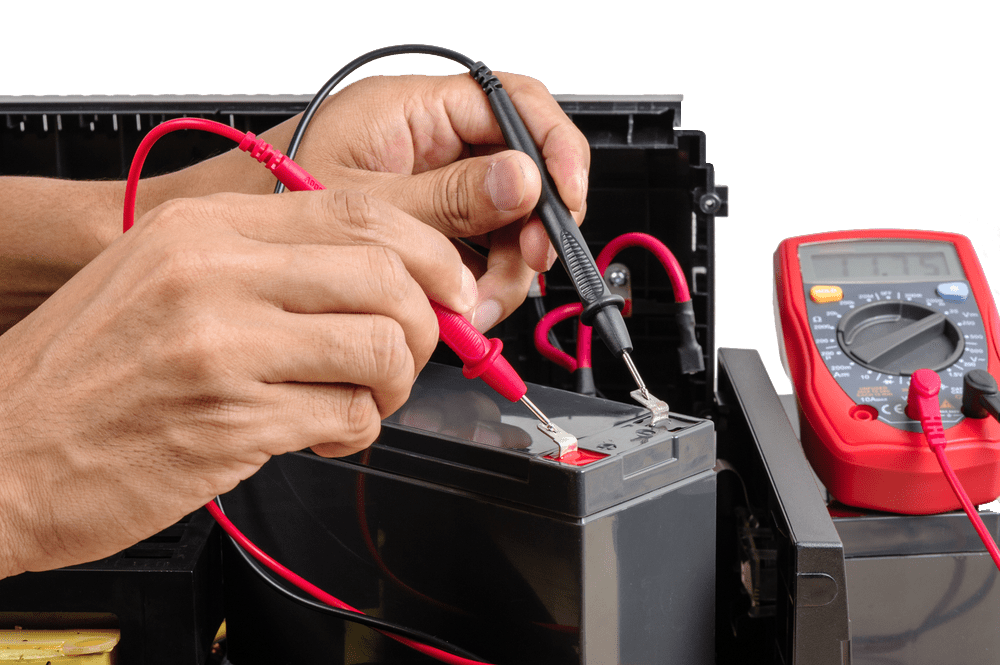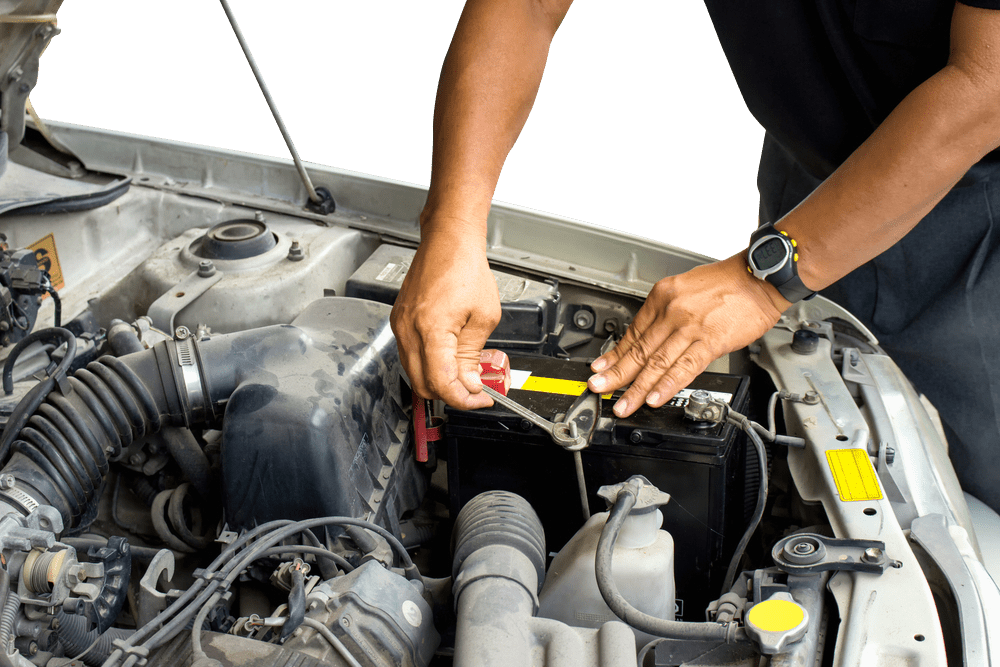- 9 Aug 2024
Driving with a Weak Car Battery

As an experienced driver, I understand the importance of maintaining a healthy car battery. A weak car battery can be a real headache, causing various issues that can impact your driving experience and even your safety on the road. In this article, we’ll explore the concept of a weak car battery, its signs, consequences, and the precautions you should take to ensure a safe and smooth driving journey.
A car battery is the heart of your vehicle’s electrical system, providing the necessary power to start the engine, power the lights, and operate various electronic components. When a car battery is weak, it means that it has lost its ability to hold a full charge or provide the required amount of power to the vehicle. This can happen due to a variety of reasons, such as age, extreme weather conditions, excessive usage of electrical accessories, or even a faulty alternator.

Signs of a Weak Car Batterycar
Recognizing the signs of a weak car battery is crucial to address the issue before it escalates. Here are some common indicators that your car battery may be losing its strength:
- Slow engine cranking: If your car takes longer than usual to start, it could be a sign of a weak battery.
- Dimming headlights: When the battery is weak, the headlights may appear dimmer than usual, especially when the engine is idling.
- Battery warning light: Most modern vehicles have a battery warning light on the dashboard that illuminates when the battery is not charging properly.
- Frequent jump-starts: If you find yourself needing to jump-start your car more often, it’s a clear sign that the battery is struggling.
- Reduced battery life: If your car battery needs to be replaced more frequently than the recommended interval, it may be a sign of a weak or failing alternator.
Consequences of Driving with a Weak Car Battery
Driving with a weak car battery can have several consequences that can impact your driving experience and the overall health of your vehicle. Let’s explore some of the potential issues:
- Difficulty starting the engine: A weak battery may not have enough power to start the engine, leaving you stranded and unable to continue your journey.
- Electrical system malfunctions: The weak battery may not be able to provide the necessary power to the vehicle’s electrical components, leading to issues with lights, radio, and other electronics.
- Increased fuel consumption: A weak battery can cause the alternator to work harder, which in turn can lead to higher fuel consumption and reduced fuel efficiency.
- Damage to other components: If the battery is too weak to power the vehicle’s electrical system, it can lead to damage to other components, such as the alternator or the starter motor.
- Potential safety risks: A weak battery can compromise the functionality of critical safety features, such as the headlights, brake lights, and emergency systems, putting you and other road users at risk.
Risks of Driving with a Weak Car Battery
Driving with a weak car battery can be a risky proposition, as it can lead to various problems that can jeopardize your safety and the overall performance of your vehicle. Here are some of the potential risks:
- Unexpected breakdowns: A weak battery can cause your car to suddenly lose power, leaving you stranded on the road, potentially in an unsafe location.
- Reduced braking and steering ability: If the battery is too weak to power the vehicle’s electrical systems, it can affect the functionality of critical components like power steering and power brakes, making it more challenging to control the vehicle.
- Increased risk of accidents: A weak battery can lead to electrical system failures, which can cause issues with the headlights, taillights, or turn signals, increasing the risk of accidents, especially during low-visibility conditions or at night.
- Damage to other components: Continued driving with a weak battery can lead to further damage to the alternator, starter motor, or other electrical components, resulting in costly repairs.
- Personal safety concerns: A weak battery can compromise the functionality of safety features like airbags, seatbelts, and emergency systems, putting you and your passengers at risk in the event of an accident.
Precautions to Take When Driving with a Weak Car Battery
If you find yourself in a situation where you must drive with a weak car battery, it’s essential to take the necessary precautions to ensure your safety and the well-being of your vehicle. Here are some steps you can take:
- Limit the use of electrical accessories: Avoid using unnecessary electrical components, such as the radio, air conditioning, or high-power lights, to conserve the battery’s remaining charge.
- Drive at a steady, moderate pace: Avoid sudden acceleration or high-speed driving, as it can put additional strain on the weak battery and the alternator.
- Avoid frequent starts and stops: Frequent engine starts and stops can deplete the battery’s charge faster, so try to minimize the number of times you turn the engine off and on.
- Keep the headlights and taillights off when possible: Use them only when necessary to preserve the battery’s charge.
- Carry a portable jump-starter or jumper leads: Having a reliable jump-starter or jumper leads in your vehicle can be a lifesaver if the battery dies unexpectedly.
- Plan your route and have a backup plan: Before setting out, plan your route and identify potential service stations or repair shops along the way, in case you need to replace the battery.
- Monitor the battery’s condition: Keep a close eye on the battery’s performance and be prepared to replace it if the issues persist or worsen.
How to Deal with a Weak Car Battery
If you find yourself dealing with a weak car battery, there are several steps you can take to address the issue and get your vehicle back on the road safely. Here’s what you can do:
- Have the battery tested: Visit a trusted battery store or mechanic and have the battery tested to determine its condition and the underlying cause of the weakness.
- Replace the battery if necessary: If the battery is beyond its useful life or cannot hold a charge, it’s best to replace it with a new, high-quality battery.
- Inspect the alternator and other electrical components: A weak battery can sometimes be a symptom of a larger issue, such as a faulty alternator or a problem with the vehicle’s electrical system. Have a mechanic inspect these components to ensure they are functioning properly.
- Consider battery maintenance: Regularly cleaning the battery terminals, checking the battery fluid levels if required, and ensuring proper charging can help extend the life of your car battery.
- Develop a battery replacement schedule: Based on the recommendations from your mechanic and the battery’s performance, create a schedule for battery replacement to avoid unexpected issues in the future.
Tips for Maintaining a Healthy Car Battery
Maintaining a healthy car battery is crucial to ensuring a smooth and safe driving experience. Here are some tips to help you keep your car battery in top condition:
- Regular battery checks: Have your car battery tested at least once a year, or whenever you notice signs of weakness, to catch any issues early on.
- Proper charging: Ensure that your vehicle’s alternator is charging the battery correctly, and avoid leaving electrical accessories on when the engine is off, as this can drain the battery.
- Battery cleaning: Regularly clean the battery terminals and connections to prevent corrosion, which can reduce the battery’s efficiency.
- Driving habits: Avoid excessive idling, frequent short trips, and the use of high-power electrical accessories, as these can all contribute to a weaker battery.
- Battery replacement: Replace your car battery every 3-5 years, or as recommended by the manufacturer, to ensure optimal performance and reliability.
If you’re concerned about the health of your car battery or need assistance with maintaining it, don’t hesitate to reach out to our team of expert technicians. We can help you identify any issues, provide recommendations for replacement or maintenance, and ensure your vehicle is running at its best. Contact us today to schedule an appointment.
Conclusion
Driving with a weak car battery can be a risky proposition, as it can lead to a variety of problems that can impact your safety, the performance of your vehicle, and your overall driving experience. By understanding the signs of a weak battery, the consequences of driving with one, and the precautions you can take, you can better navigate these situations and ensure a safe and smooth journey.
Remember, regular battery maintenance, timely replacement, and proactive troubleshooting can go a long way in keeping your car’s electrical system in top shape. By following the tips and advice outlined in this article, you can help extend the life of your car battery and enjoy a worry-free driving experience.











